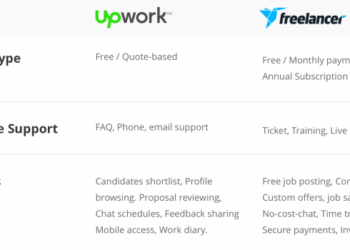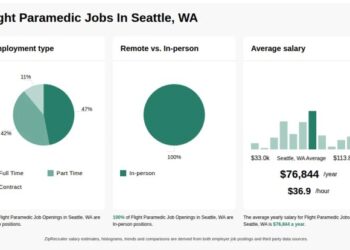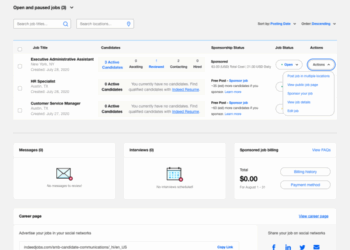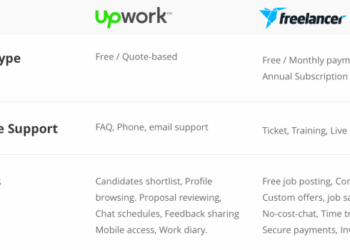Best jobs for expats in Europe and Asia sets the stage for this enthralling narrative, offering readers a glimpse into a story that is rich in detail and brimming with originality from the outset.
As we delve into the top industries, cultural aspects, and job prospects in Europe and Asia, this guide aims to provide valuable insights for expats seeking employment opportunities in these regions.

Best Jobs for Expats in Europe
Europe offers a diverse range of job opportunities for expats across various industries. Understanding the key factors that make these industries attractive and considering cultural aspects are essential for expats looking to work in Europe.
Top Industries Offering the Best Job Opportunities for Expats in Europe
- Technology: With major tech hubs in cities like London, Berlin, and Amsterdam, the technology sector provides numerous job opportunities for expats with skills in IT, software development, and data analysis.
- Finance: Financial centers such as London, Zurich, and Frankfurt offer expats opportunities in banking, finance, and accounting roles.
- Hospitality and Tourism: Countries like Spain, Italy, and France are known for their thriving hospitality and tourism industries, providing job openings in hotels, restaurants, and travel agencies.
Key Factors Making These Industries Attractive for Expats
- Competitive Salaries: Many industries in Europe offer competitive salaries and benefits to attract skilled expat workers.
- Work-Life Balance: European countries are known for their emphasis on work-life balance, making them appealing to expats looking for a better quality of life.
- Diverse Workforce: Companies in Europe often value diversity and welcome expats, creating a multicultural work environment.
Cultural Aspects Expats Should Consider When Looking for Jobs in Europe
- Language Skills: While English is widely spoken, knowing the local language can be advantageous in certain industries and countries.
- Professional Etiquette: Understanding cultural norms around communication, dress code, and business practices is essential for success in European workplaces.
Countries Known for Welcoming Expats and Offering Good Job Prospects
- Germany: Known for its strong economy and job opportunities in engineering, manufacturing, and healthcare sectors.
- Netherlands: A hub for international business with opportunities in finance, logistics, and technology.
- Switzerland: Offers high salaries and a high standard of living, especially in finance, pharmaceuticals, and hospitality.
Best Jobs for Expats in Asia
When it comes to finding the best jobs for expats in Asia, there are several factors to consider, including the job market in different regions, visa and work permit requirements, in-demand skills, and the challenges expats might face.
Job Market for Expats in Different Regions of Asia
Asia is a diverse continent with varying job markets for expats in different regions:
- East Asia: Countries like Japan, South Korea, and China offer opportunities in industries such as technology, finance, and education.
- Southeast Asia: Nations like Singapore, Thailand, and Malaysia have a growing demand for expats in fields like tourism, healthcare, and engineering.
- South Asia: India and Sri Lanka attract expats in IT, healthcare, and education sectors.
Visa and Work Permit Requirements
Visa and work permit requirements for expats in Asia vary by country, but most nations require a job offer from a local employer, proof of qualifications, and sometimes a medical check-up.
In-Demand Skills or Professions for Expats in Asia
Some of the most in-demand skills for expats in Asia include:
- IT and tech-related roles
- Language teachers and translators
- Healthcare professionals
- Finance and banking experts
Challenges Faced by Expats in Asia and How to Overcome Them
Expats working in Asian countries may encounter challenges such as cultural differences, language barriers, and work-life balance issues. To overcome these challenges, it is important to be open-minded, learn the local language, and seek support from expat communities.
Salary and Benefits for Expats
When considering a job opportunity as an expat in Europe or Asia, it is essential to understand the salary and benefits that come with the position. Different regions offer varying compensation packages, so it's crucial to compare and negotiate effectively.
Average Salaries for Expats
In Europe, expats can expect higher average salaries compared to Asia, especially in sectors like finance, technology, and healthcare. For instance, a software engineer in Europe may earn around $70,000 to $100,000 annually, while the same position in Asia might offer $40,000 to $60,000 per year.
Benefits Packages
Typical benefits packages for expats in both regions often include health insurance, housing allowances, transportation subsidies, and sometimes even language classes or cultural integration programs. These perks can significantly enhance the overall expat experience and quality of life.
Cost of Living and Salary Negotiations
Cost of living plays a crucial role in salary negotiations for expats
. While Europe generally has a higher cost of living compared to Asia, it's essential to factor in expenses like housing, groceries, utilities, and leisure activities when discussing salary and benefits with potential employers.
Tips for Negotiating Salary and Benefits
- Research average salaries in your industry and location to have a benchmark for negotiations.
- Highlight your unique skills and experiences that set you apart from local candidates.
- Be flexible and open to negotiation, but also know your worth and don't undersell yourself.
- Consider the overall benefits package, not just the salary, when evaluating job offers.
- Seek guidance from local professionals or expat communities to better understand the market and negotiation norms.
Cultural Integration and Work Environment
When moving to a new country for work, expats face the challenge of integrating into the local work culture. It is essential to understand the cultural differences and adapt to the work environment in order to succeed in your new job.
Strategies for Expats to Integrate into the Local Work Culture
- Observe and learn from local colleagues to understand the norms and expectations in the workplace.
- Participate in team-building activities and social events to build relationships with your coworkers.
- Seek feedback and be open to constructive criticism to improve your performance and communication with colleagues.
- Learn the local language to enhance your communication skills and foster better relationships with your coworkers.
Importance of Language Skills for Expats
Language skills play a crucial role in cultural integration for expats working in Europe and Asia. Being able to communicate effectively in the local language can help expats build rapport with colleagues, understand cultural nuances, and navigate the work environment more smoothly.
Successful Cultural Integration Stories from Expats
- A software engineer from the U.S. successfully integrated into the work culture in Japan by taking language classes and participating in traditional tea ceremonies with coworkers.
- An expat from France working in Germany built strong relationships with colleagues by learning German and actively engaging in team activities outside of work.
Adapting to Different Work Environments
- In countries like Sweden and Denmark, work environments tend to be more relaxed with a focus on work-life balance. Expats should embrace this culture and avoid overworking.
- In contrast, countries like Singapore and South Korea have fast-paced work environments that value efficiency and punctuality. Expats should adapt to the local work ethic and be proactive in their approach.
Conclusive Thoughts
From salary comparisons to tips on cultural integration, this guide has covered a wide array of topics concerning the best jobs for expats in Europe and Asia. Whether you're considering a move abroad or looking to enhance your expat experience, the information presented here serves as a valuable resource to navigate the job market in these diverse regions.
Quick FAQs
What are the visa requirements for expats looking to work in Europe and Asia?
Visa requirements vary by country, but typically involve proof of employment, a valid passport, and sometimes a work permit. It's advisable to check the specific requirements of the country you intend to work in.
Which industries in Europe offer the best job opportunities for expats?
Industries such as technology, finance, healthcare, and engineering are known to offer great job prospects for expats in Europe due to high demand and competitive salaries.
What challenges might expats face when working in Asian countries?
Challenges can include language barriers, cultural differences, and adjusting to work practices. Overcoming these challenges requires patience, open-mindedness, and a willingness to adapt.
How does cost of living factor into salary negotiations for expats?
Expats should consider the cost of living in their host country when negotiating salaries to ensure they can maintain a comfortable standard of living. Employers may offer adjustments based on this factor.










